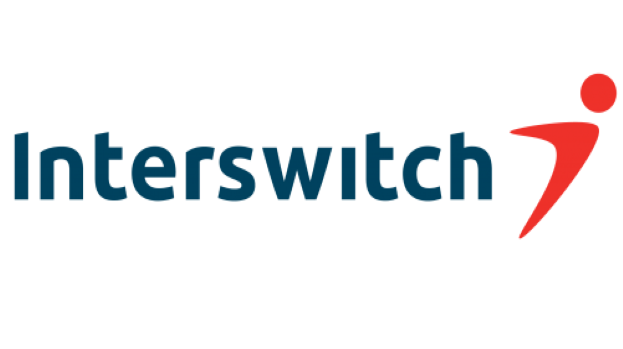E-Business
90% Educators Agree Technology Will Enhance Classroom Experience- Microsoft

Result of a new study by Microsoft reveals an outstanding 90% educators in Nigeria have a clear vision for technology implementation in the classroom.
Similarly, the Study identified problem Solving, skilled communication and knowledge construction among top skills required by students to adapt to future workplace.
Microsoft released the findings from a new education survey of nearly 50 educators in Nigeria, in which they expressed the challenges and opportunities in optimizing technology for the classroom as well as the skillsets required to succeed.
The survey commissioned by Microsoft, and conducted by Market research firm YouGov, was shared at the annual BETT Middle East 2017 event held in Abu Dhabi, on April 25-26 and brought together over 1600 leading educators from across the region. BETT (British Education and Training Technology) has established itself as a global meeting place for the education technology community.
Through its ongoing series of world-class events, it continues to promote the discovery of technology and knowledge to enhance lifelong learning.
Educators from Nigeria were also present at BETT Middle East 2017 led by Jordan Belmonte, the Education Programs Manager for Microsoft Nigeria.
Educators in Nigeria see themselves as highly tech-proficient and believe they should lead the transformation in the classroom. They are most interested in apps that help coordinate teaching materials.
The findings revealed that 90% educators said they believe their school leaders have a clear vision of how to use technology for the enhancement of the classroom experience.
54% of educators reported that technology was used in their institution; and a 64% majority said problem-solving was a key skill required by students. When addressing the absence of technology as it impacted the student body, 46% believed students will be they will be disadvantaged in terms of entrepreneurship opportunities
However, 54% educators surveyed lacked proper understanding about technology implementation and integration into the way they teach.
The study revealed that the biggest factor needed to successfully transform teaching and learning experiences was educator skill sets – in particular, knowing how to make the most of available resources and tools.
“Over several decades, Microsoft has worked with institutions and educators around the world, and gained a deep understanding of how technology in schools can transform the learning experience,” said Anthony Salcito, vice president, Worldwide Education, Microsoft Corporation. “We continue to bring our leading-edge products, services and programs to bear on this challenge, always taking into account that technology is not the lone agent in such transformations, and can even complicate or slow down the process if not implemented with due diligence. We recommend that education leaders take a curriculum-focused approach to technology adoption, keeping in mind their educational goals, and then integrate those technologies that facilitate tangible benefits for students and teachers.”
“Lack of digital proficiency is the biggest challenge facing the youth, especially in the Middle East. It is crucial to take the steps for equipping educators with the right tools and providing them with trainings that will help address the technological challenges in the classroom; empowering students with key 21st-century skills to deliver immense change, ”Said, Jordan Belmonte, Education Programs Manager, Microsoft Nigeria.
The company’s collaboration with BETT, introduced educators in the Middle Eastand beyond to generational leaps in classroom-enhancing technologies and methodologies. Delegates were able to attend Microsoft Teacher Development Track, the School Leaders Track and the Education Digital Transformation Track to unlock fresh approaches with tools such as Office Mix, “Creative Coding through Games and Apps”, and drive improvement within their own schools and systems.
In addition to its in-depth tracks, Microsoft along with its partners also demonstrated its latest solutions and devices to enable digital transformation in classrooms. The company also imparted some of its expertise on device management, covering Windows 10, the Microsoft Educator’s Community and Office 365 Education.
E-Business
Firm Identifies RenEngine Loader Distributed Through Pirated Games and Software

Kaspersky Threat Research has revealed its analysis of RenEngine, a malware loader that has recently gained public attention. Kaspersky identified RenEngine samples as early as March 2025, with its solutions already protecting users from the threat at that time.

Beyond the cracked games highlighted in recent reports, Kaspersky researchers discovered that attackers created dozens of websites distributing RenEngine through pirated software, including graphics editors like CorelDRAW. This expands the known attack surface beyond the gaming community to anyone seeking unlicensed software.
Kaspersky has recorded incidents in Russia, Brazil, Turkey, Spain and Germany, among other countries. The distribution pattern indicates opportunistic attacks rather than targeted operations.
When Kaspersky first identified RenEngine, the loader was delivering the Lumma stealer. Current attacks distribute ACR Stealer as the final payload, and Vidar stealer has also been observed in some infection chains.
The campaign exploits modified versions of games built on the Ren’Py visual novel engine. When users launch infected installers, a fake loading screen appears while malicious scripts execute in the background. The scripts include sandbox detection capabilities and decrypt a payload that initiates a multi-stage infection chain using HijackLoader, a modular malware delivery tool.
“This threat extends beyond pirated games — attackers are using the same technique to distribute malware through cracked productivity software, which broadens the potential victim pool significantly,” said Pavel Sinenko, lead malware analyst at Kaspersky Threat Research. “Game archive formats vary by engine and title. If an engine doesn’t check the integrity of its resources, attackers can embed malware that executes the moment you click play.”
Kaspersky solutions detect RenEngine as Trojan.Python.Agent.nb and HEUR:Trojan.Python.Agent.gen. HijackLoader is detected as Trojan.Win32.Penguish and Trojan.Win32.DllHijacker.
E-Business
Interswitch Partners Abia to Digitise Public Hospitals

Interswitch, a technology company, through its health-tech subsidiary, Interswitch eClat, has taken a major step in advancing Nigeria’s public-sector health digitisation agenda following the conclusion of a high-level stakeholders’ engagement with the Abia State Government.

The engagement took place ahead of the phased deployment of eClinic, Interswitch eClat’s Electronic Medical Records platform, across public health facilities in the state, the firm stated in a statement on Friday.
The engagement, convened by the Abia State Ministry of Health in collaboration with Interswitch and held at the State’s Ministry of Health in Umuahia, brought together senior government officials, health administrators, Interswitch representatives, and key ecosystem stakeholders to align on the scope, implementation framework, and expected outcomes of the proposed eClinic deployment.
The initiative reflects a shared commitment to leveraging digital infrastructure to improve healthcare delivery, operational efficiency, and patient outcomes across Abia State’s public health system.
Discussions focused on deploying Interswitch’s eClinic solution in alignment with Abia State’s broader healthcare reform agenda under the current administration, particularly the transition from fragmented, paper-based systems to secure, interoperable digital platforms across public health facilities.
The proposed kick-off phase will span six public health facilities, including three primary healthcare centres, two secondary facilities, and one tertiary hospital, creating an end-to-end digital care pathway that strengthens patient referrals, supports continuity of care, and enables data-driven decision-making across all levels of service delivery.
The EMR solution is built to reduce patient waiting times, strengthen referral processes, and ensure the secure handling of both clinical and administrative data, supported by a hybrid infrastructure that enables local hosting with cloud-based backup.
Speaking at the engagement, Prof Enoch Uche, the Commissioner for Health, Abia State, described the initiative as a major milestone in the state’s healthcare transformation journey and highlighted the importance of private-sector collaboration in achieving sustainable impact.
“The Ministry of Health in Abia State is excited about the digitisation of health facilities, starting with Interswitch’s eClinic pilot phase involving three primary, two secondary, and one tertiary health centre. This initiative will enhance efficiency, accountability, and patient care by linking records across different levels of care.
“Global evidence shows that digital health improves access, reduces the cost of care, and maximises human resources while personalising services for our people. This partnership with Interswitch represents a key deliverable for this administration and aligns with the Governor’s vision for a modern, technology-driven health system,” he said.
During technical sessions led by Babatunde Fadeyi, Vice President, Health Ecosystem (Public Sector), Interswitch, stakeholders were taken through the core capabilities of Interswitch’s eClinic platform.
These include secure patient record management, ICD-11–compliant diagnosis coding, controlled data update protocols, and integrated billing and reporting tools designed to improve efficiency and accountability across health facilities.
Stakeholders were also briefed on the platform’s governance framework, risk mitigation approach, and phased implementation roadmap. Commenting on the engagement, Fadeyi reaffirmed Interswitch’s commitment to delivering measurable impact through technology-enabled healthcare systems.
“Abia State has demonstrated a strong commitment to innovation and system reform. The alignment of the state’s healthcare priorities with national health digitisation objectives creates a solid foundation for meaningful progress. Interswitch’s eClinic platform is designed to improve hospital operations by automating workflows, securing patient data, and providing healthcare managers with reliable insights to guide decisions.
“Beyond improving patient experience, it supports stronger revenue tracking, operational efficiency, and accountability. Our focus is to ensure the success of this pilot phase and deliver tangible improvements across productivity, service delivery, and patient satisfaction,” he said.
Also speaking at the engagement, Dr Ifeyinwa Blossom Uma-Kalu, the Permanent Secretary of the Ministry of Health, Abia State, highlighted the operational and clinical value of Interswitch’s eClinic initiative, particularly in strengthening referrals, improving revenue management, and expanding access to specialist care.
“This digitisation initiative will help us track our finances and internally generated revenue more accurately while reducing leakages. More importantly, it strengthens our referral system by allowing patient records to move seamlessly from primary to secondary and tertiary care.
“With a digital framework, healthcare workers in remote communities can access specialist support through telemedicine, helping to save lives and improve outcomes. This is a critical tool in our efforts to reduce maternal and infant mortality, and we are eager to see the outcomes of Interswitch’s eClinic,” she noted.
The engagement also addressed key success factors for the project, including power stability, user training, change management, and inter-agency collaboration, with both parties emphasising sustainability and scalability as the project progresses.
E-Business
WIEG 2026 Summit Shifts to April 22-23 for Maximum Impact

Organisers of the World International Economic Group (WIEG) 2026 Investment Summit have rescheduled the event to April 22-23, 2026, at Four Points by Sheraton, Oniru, Victoria Island, Lagos, to boost institutional participation, stakeholder alignment, and investment outcomes amid Ramadan considerations.

WIEG 2026 Summit
A statement from the Summit secretariat attributed the shift to extensive consultations with high-level public and private sector players, including government institutions, development finance partners, industry regulators, sponsors, and sector leaders.
It emphasised the need for additional time post-Ramadan to enable deeper engagement, secure internal approvals, and align with senior executives’ and policy leaders’ calendars.
The rescheduling, described as a “strategic enhancement,” allows for substantive contributions from speakers, panelists, and deal partners while mobilising investment networks and sectoral ecosystems.
The secretariat expressed appreciation to stakeholders whose early commitments underscore the Summit’s credibility in building a transformative platform for Nigeria and Africa.
Unlike conventional conferences, the WIEG 2026 Summit targets high-impact deal-making for a Smart City project and key Nigerian economic sectors, ensuring top-level decision-makers deliver measurable results.
The new dates are expected to expand government-private sector representation, strengthen investor pipelines, boost global delegate turnout, foster policy-investment dialogues, and heighten partnership visibility.
WIEG, registered in 200 countries with headquarters in Malaysia, promotes global partnerships for business opportunities across investment, trade, community development, humanitarian action, and sustainable growth in emerging markets. Its Nigeria chapter is fully registered to coordinate local programmes, investments, and partnerships.

 News2 days ago
News2 days agoABoICT Lecture 2026 to Focus on Impact of AI, IoT on Business Operational Efficiency

 General News2 days ago
General News2 days agoLeo Stan @ 70: Blessed and Bruised by Country, Eyes Next Disruption

 General News2 days ago
General News2 days agoZinox Technologies and TD Africa Forge Strategic Partnership to Revolutionize African Tech Ecosystem

 Telecom2 days ago
Telecom2 days agoUwaje Pays Tribute to Leo Stan Ekeh @70

 General News1 day ago
General News1 day agoNITDA, Abia Partner on Enterprise Architecture Reform

 Telecom1 day ago
Telecom1 day agoCyber Immunity Emerges as Shield for Nigerians Amid Rising Scams

 E-Financial1 day ago
E-Financial1 day ago$214Bn Missing, Institutions Silent: Is Accountability Dead in Nigeria?

 E-Business1 day ago
E-Business1 day agoInterswitch Partners Abia to Digitise Public Hospitals














